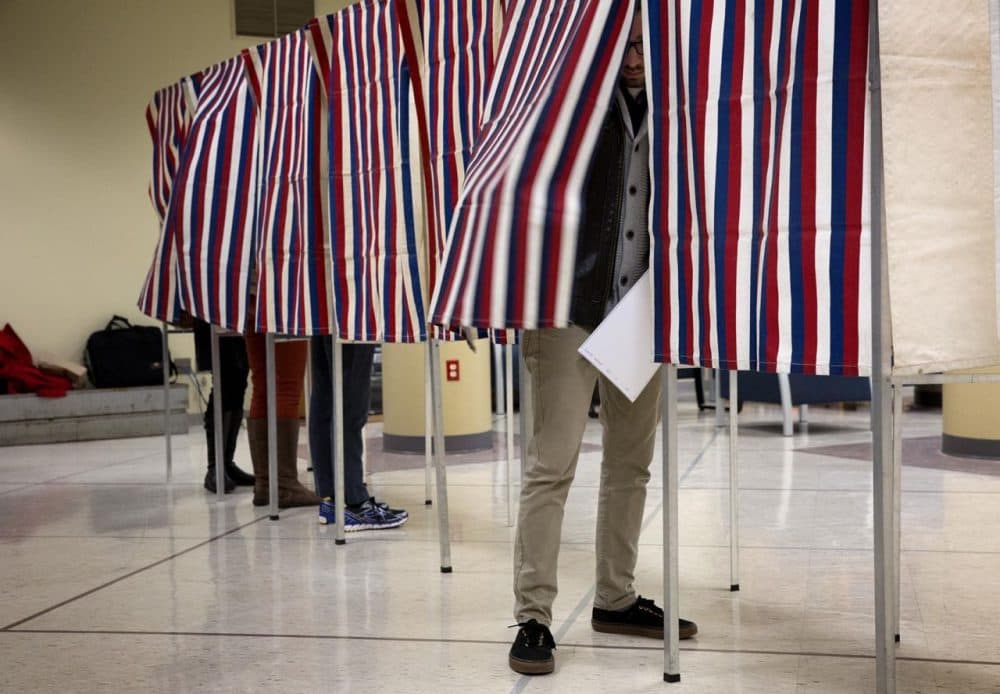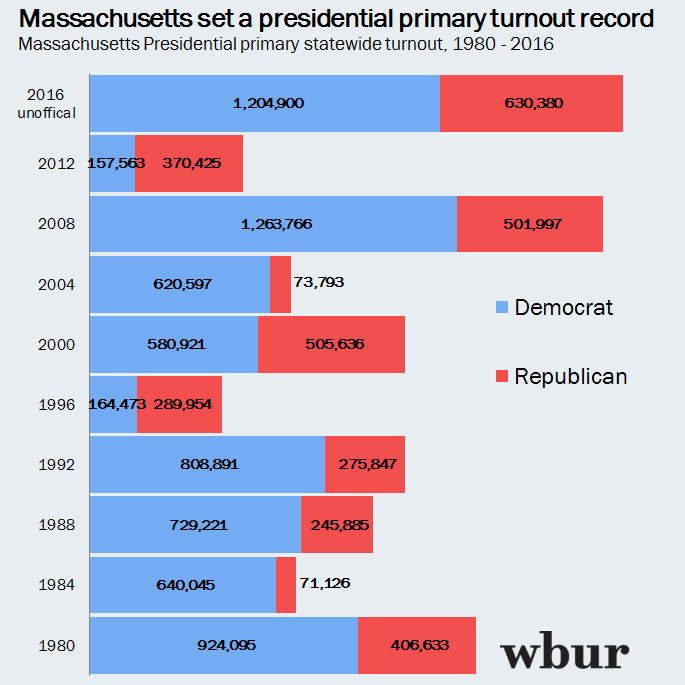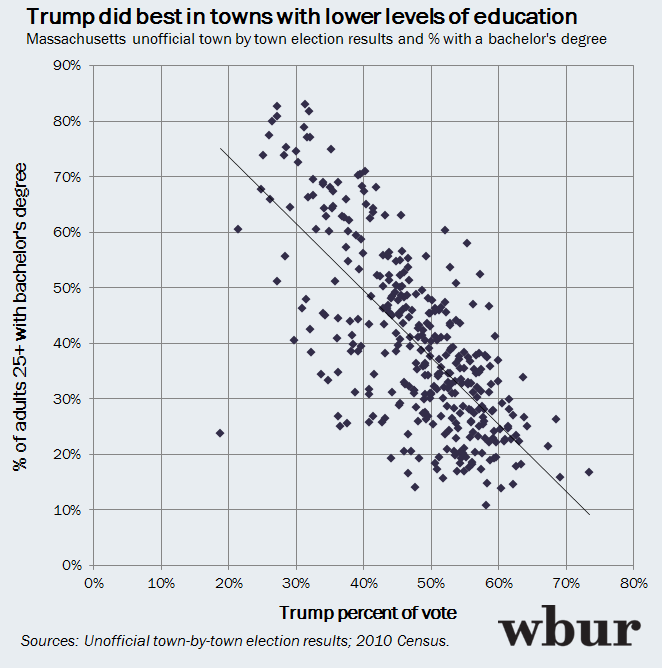Advertisement
Massachusetts Elections: The Party's Over, For A While

For us in Massachusetts, Super Tuesday was a kind of last hurrah.
After a near-nonstop stream of nationally watched political contests stretching back to 2010, we have nothing of wider interest ahead on the ballot for a while. The 2016 presidential vote is all but a lock for the Democratic nominee, and there is no race for Senate or governor until 2018. There's not even an Olympics to vie for anytime soon. A few ballot questions will draw interest inside the state, and municipal elections (including Boston) are next November.
But in terms of big, nationally watched races, it's over for a while.
We went out with a bang. Super Tuesday was a record-setting day for the state, with 1.8 million voters casting their ballots in the presidential primaries. That record turnout was driven by the Republican race; more than 630,000 voters cast GOP ballots, 25 percent higher than the previous record of 505,000 who voted Republican in 2000. On the Democratic side, turnout was just below the record set in 2008.

Here are the key facts that propelled the result on each side.
Republicans: Trump Trumps All
Donald Trump soared to new heights in Massachusetts, winning a larger share of the vote here than in any state yet. He swept pretty much every demographic group covered in the exit polling: men and women, young and old, all education and income levels, conservative and moderates, Republicans and independent voters.
By far his best group was, to quote Trump himself, “the poorly educated.” The relationship between educational attainment and support for Trump is staggering. According to exit polls, Trump won 62 percent of voters without a college degree, compared with just 40 percent of those with a degree, and only 29 percent of those with a postgraduate degree.
Town-by-town results also show this, and again the relationship is very strong. The lower the share of bachelor’s degrees in a town, the better Trump did there.
The towns near the top of the chart are those won by John Kasich: Weston, Wellesley, Newton, Cambridge, Brookline, Lexington, Sudbury and others. If Trump won lower education, lower income communities, Kasich did best in these highly educated, affluent suburbs of Boston. Apart from those, and a couple towns out west won by Marco Rubio, it was a near sweep by Trump. Despite early reports to the contrary, Trump even snatched Chelsea away from former Virginia Gov. Jim Gilmore, who had been declared the winner there as a result of a clerical error.
Advertisement
Democrats: Cities Flex Their Muscles, Propel Clinton To Win
Hillary's Clinton's margin in Massachusetts was razor thin — just 1.4 percent, or 17,000 votes. In such a tight race, any difference between the candidates could be seen as decisive. But one way of looking at the returns is that Clinton got more than her entire margin of victory from the state’s large, diverse cities. She won Boston by about 20,000 votes, and the original Gateway Cities -- Springfield, Worcester, Lowell, Lawrence, Fall River, New Bedford and a few others -- by nearly 15,000.
Without boosts from these two areas, Clinton’s roughly 17,000-vote victory would have turned into a roughly 17,000 vote-defeat.

This has a lot to do with the diversity of the cities' electorates. The same problems with nonwhite voters that sunk Bernie Sanders in Nevada and South Carolina dogged him even in Massachusetts. Sanders basically tied Clinton with white voters, but he lost nonwhite voters by nearly 20 points. Looking ahead, he may continue to win a few states. But unless he can figure a way to close the gap with nonwhite voters, the nomination is likely Clinton's to lose.
There were other demographic realities which helped Clinton win. Exit polls show 58 percent of voters on the Democratic side were women, and Clinton won by 15 points. She also avoided being swamped by quite as a huge margin among younger voters as she was in New Hampshire. But the big story continues to be diverse electorates stumping Sanders.
As for us here in Massachusetts, we'll be looking ahead to ballot questions, municipal races. Our time on the national stage is over for a while.
Steve Koczela is president and Rich Parr is research director for the MassINC Polling Group and regular contributors to WBUR Politicker. They tweet @skoczela and @richparr79.